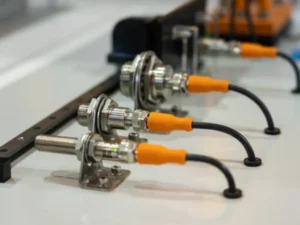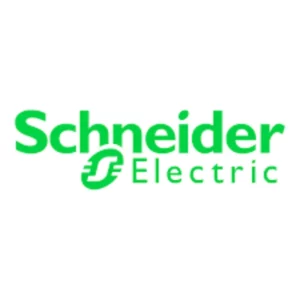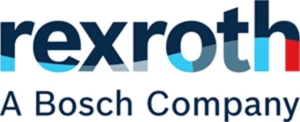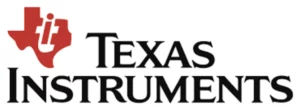Preface

In the realm of industrial operations, the selection of an appropriate sensor is pivotal in determining the efficacy and efficiency of the process. Whether it pertains to the meticulous monitoring of temperature variables, the stringent regulation of pressure parameters, or the accurate detection of kinetic activities, the precision and dependability of your sensory equipment are imperative and unequivocal. In light of this, we are delving into an in-depth analysis of the top six industrial sensor manufacturers of the year, highlighting their groundbreaking innovations and significant contributions to a myriad of industrial sectors. Let us embark on this informative journey!
OMCH (China)

Main Markets: Global
Key Services: Specialized in manufacturing inductive proximity switches, photoelectric switches, and various other sensor types.
Specific Description:
OMCH, established in 1986, has evolved substantially to ascend to a prominent position in the industrial sensor manufacturing sector, with a special emphasis on the production of inductive proximity switches. Originating from a modest foundation with merely a trio of team members, OMCH has exhibited a trajectory of considerable growth, attributing a significant portion of its success to its cornerstone product, the inductive proximity switch. By the advent of 1990, this strategic concentration facilitated OMCH’s transition to a dedicated factory, thereby augmenting its operational capacity substantially.
What distinguishes OMCH in its sector is its steadfast dedication to excellence in quality coupled with a relentless pursuit of innovation. Throughout its years of expansion, while broadening its array of products to encompass capacitive proximity switches, photoelectric switches, and light screen sensors, OMCH has consistently prioritized inductive proximity switches, accounting for 60% of its annual revenue. This focused approach highlights their aspiration to be recognized as a vanguard in providing specialized solutions for automation technologies.
Central to OMCH’s manufacturing ethos is an exhaustive quality control regimen. This process initiates with a scrupulous inspection of raw materials, ensuring the incorporation of only the most superior components. Their production methodology, marked by streamlined assembly line procedures and the integration of automated machinery, epitomizes operational efficiency and meticulous accuracy. Subsequently, each product is subjected to a comprehensive testing protocol, certifying that every unit adheres to the most stringent quality benchmarks prior to customer delivery. This meticulous attention to detail transcends product fabrication and is extended to packaging processes, where a final review is conducted to assure the product’s integrity upon its arrival to the client, thereby reinforcing OMCH’s commitment to delivering excellence at every stage of production.
Schneider Electric (France)

Main Markets: Global
Key Services: Energy management, automation solutions, and digital transformation in industries.
Specific Description:
Schneider Electric, an eminent entity in the domains of energy management and automation, has carved a significant niche in the industrial sensor market. Their extensive product portfolio encompasses a versatile array of sensors, including those designed for pressure, temperature, and humidity measurements. These sensors are integral to various sectors such as energy management, manufacturing, and building automation systems. Renowned for their precision, durability, and contribution to energy conservation, Schneider Electric’s sensors dovetail with the company’s overarching commitment to fostering sustainable and intelligent energy solutions, while offering a comprehensive range of products.
As a vanguard in their industry, Schneider Electric’s core mission revolves around being a digital ally in promoting sustainability and operational efficiency. They are at the forefront of driving digital transformation across diverse environments – from residential and commercial buildings to data centers, infrastructural projects, and industrial settings. By amalgamating cutting-edge process and energy technologies, Schneider Electric orchestrates end-to-end solutions that span from interconnected products to sophisticated control systems, software, and services. This holistic approach encompasses the entire product lifecycle, facilitating integrated enterprise management.
The formidable presence of Schneider Electric in the global marketplace is exemplified by its robust performance in China, where it has established deep roots over the past three decades. Since inaugurating its initial joint venture in Tianjin in 1987, Schneider Electric China has undergone a remarkable evolution. Initially focusing on medium and low voltage distribution and industrial automation, the company has now ascended to the forefront of the industry, offering comprehensive lifecycle energy efficiency solutions. These solutions cater to a wide array of sectors including buildings, data centers, various industries, and infrastructural projects, thereby solidifying Schneider Electric’s stature as an industry leader in these realms.
Bosch Rexroth (Germany)

Main Markets: Global
Key Services: Engineering and manufacturing of drive and control technologies.
Specific Description:
Bosch Rexroth, an eminent titan in the domain of industrial sensor technology, is renowned for its meticulous provision of high-caliber sensors, adeptly serving a broad array of applications across hydraulic, pneumatic, and electromechanical drive systems. Their preeminence is anchored in an exceptional aptitude for integrating advanced sensor technology with complex industrial mechanisms. This fusion transforms these components from isolated entities into essential constituents of a comprehensive system, markedly enhancing the operational efficiency and productivity of various machinery. Their portfolio, characterized by its extraordinary diversity and quality, underscores this advantage.
At the heart of Bosch Rexroth’s technological mastery are their sophisticated temperature and pressure sensors, which are critical in industries like power generation and renewable energy. These sensors are integral to essential operations, including the management of steam injection processes and the meticulous monitoring of gearboxes in wind turbines. They are lauded for their unwavering reliability and exceptional precision, maintaining performance in even the most demanding conditions. This reliability is partly attributable to their design, which often features robust stainless steel construction, making them exceptionally suited to withstand the harsh conditions prevalent in industrial environments.
Bosch Rexroth’s commitment to relentless innovation is evident in their persistent efforts to enhance sensor functionality. Initiatives aimed at improving response times and increasing measurement accuracy are reflective of their dedication to excellence. This continuous pursuit of technological advancement ensures that Bosch Rexroth’s sensor solutions consistently redefine industry standards, solidifying their status as vanguards in the industrial sensor landscape.
Rockwell Automation (USA)

Main Markets: Global
Key Services: Automation and information technology products and services.
Specific Description:
Rockwell Automation has resolutely cemented its position as a vanguard in the industrial automation sector, showcasing its profound technical prowess through an extensive suite of sensor solutions. Their expertise encompasses a diverse range of sensors, adept at gauging critical parameters such as pressure, temperature, and humidity, which are paramount in augmenting industrial operational efficiency. These sensors have garnered widespread adoption across a multitude of sectors, ranging from aerospace to pharmaceuticals, thereby highlighting their adaptability and dependability.
In particular, Rockwell’s humidity and temperature sensors are indispensable in settings where rigorous control of atmospheric conditions is critical, as observed in the pharmaceutical manufacturing and food and beverage industries. These state-of-the-art sensors facilitate real-time surveillance and modulation of environmental conditions, a process crucial for upholding the integrity and uniformity of products. Moreover, Rockwell Automation’s unwavering commitment to innovation is mirrored in their development of intelligent sensor solutions. Equipped with advanced connectivity features, these sophisticated sensors integrate seamlessly into comprehensive industrial automation systems. This integration is instrumental in enhancing data acquisition and analytical capabilities, thereby playing a vital role in predictive maintenance and process optimization strategies.
As a result, Rockwell’s sensors not only fulfill traditional functions but also serve as essential elements within a larger industrial ecosystem. They are pivotal in streamlining operations and boosting productivity, thereby reinforcing Rockwell Automation’s status as a luminary in the realm of industrial automation.
Texas Instruments (United States)

Main Markets: Global
Key Services: Semiconductor design and manufacturing.
Specific Description:
Texas Instruments (TI), a luminary in the sphere of semiconductor and chip technology, also exerts a formidable influence in the industrial sensor market. Their expansive portfolio of sensor products, encompassing temperature, pressure, and gas sensors, is integral to the operational efficacy of electronic components and consumer electronics. TI’s sensors are acclaimed for their unparalleled precision and reliability, making them exceptionally suited for critical applications across diverse sectors, including aerospace, medical device manufacturing, and the automotive industry.
The technological preeminence of TI’s sensors is rooted in their advanced electronic components, which guarantee superior performance, manifested in enhanced accuracy, expedited response times, and prolonged durability. For instance, TI’s temperature sensors are meticulously engineered to achieve remarkable precision, an attribute vital for applications such as the monitoring of sophisticated medical devices and aerospace equipment. Moreover, TI’s dedication to miniaturization and energy conservation results in sensors that are not only high-performing but also compact and ecologically sustainable. This feature is especially crucial in the domains of consumer electronics and Internet of Things (IoT) devices, where space constraints and energy efficiency are paramount.
TI’s steadfast commitment to innovation in sensor technology, combined with their extensive expertise in semiconductors, cements their position at the forefront of the industrial sensor market. They provide solutions that are not just at the zenith of technological advancement but also supremely functional and applicable in a myriad of settings.
Omron Corporation (Japan)

Main Markets: Global
Key Services: Automation components, systems, and services.
Specific Description:
Omron Corporation, a distinguished entity in the automation industry, is universally lauded for its exceptional sensor solutions. Their comprehensive range of products, which includes an array of sophisticated sensors like proximity sensors, photoelectric sensors, and advanced vision sensors, caters indispensably to various sectors including manufacturing, healthcare, and consumer electronics. Omron’s sensors are renowned for their extraordinary precision, robustness, and adaptability, making them an exemplary choice for a wide spectrum of industrial applications.
A salient feature of Omron’s technological arsenal is their state-of-the-art vision sensors, which are indispensable in complex machine vision applications and intricate image processing tasks. These sensors are instrumental in enhancing the quality control mechanisms within the manufacturing industry, facilitating the detection of flaws and ensuring the consistency of product quality. Equipped with cutting-edge image processing capabilities, Omron’s vision sensors adeptly perform sophisticated functions such as pattern recognition and meticulous dimensional analysis with notable precision.
Furthermore, Omron is a vanguard in the innovation of Internet of Things (IoT)-enabled sensors, which are characterized by their advanced connectivity and comprehensive data analytics capabilities. These innovative sensors are central to the transformation of industrial operations, playing a pivotal role in predictive maintenance and process optimization. They mark a significant stride towards a more data-driven and efficient operational framework, underscoring Omron’s commitment to pioneering technologies in the automation sector.
How to Select Industrial Sensor Manufacturers for Your Practical Needs?

Additionally, assessing the spectrum of industries a manufacturer serves is invaluable. This inquiry provides profound insight into their technical expertise and reliability. A manufacturer that provisions sensors for critical sectors such as the pharmaceutical industry, mining equipment production, or specializes in the engineering of mechanical panel gauges and accelerometers, demonstrates a diverse and adaptable proficiency. The evaluation of their innovative track record is also paramount. Investigating whether they consistently lead in advancing technologies, particularly in the development of intelligent sensors and controllers for avant-garde applications, is essential.
Attention must also be paid to their quality certifications, especially in areas like analog and digital technology, appliance labeling, and OEM production. These certifications are pivotal indicators of the manufacturer’s commitment to maintaining high-quality standards. Furthermore, the quality of customer support provided is a significant factor. Exceptional customer service is crucial for ensuring the seamless integration and optimal functionality of their products in your operations.